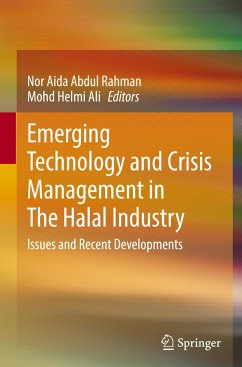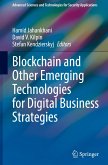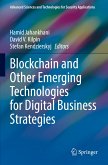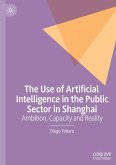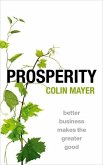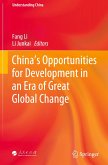Emerging Technology and Crisis Management in The Halal Industry
Issues and Recent Developments
Herausgegeben:Rahman, Nor Aida Abdul; Ali, Mohd Helmi
Emerging Technology and Crisis Management in The Halal Industry
Issues and Recent Developments
Herausgegeben:Rahman, Nor Aida Abdul; Ali, Mohd Helmi
- Gebundenes Buch
- Merkliste
- Auf die Merkliste
- Bewerten Bewerten
- Teilen
- Produkt teilen
- Produkterinnerung
- Produkterinnerung
This book provides a comprehensive discussion on emerging technologies in the Halal industry including recent highlights on the cartel issue and market competition in the crises era. Readers are provided an understanding of both technology application from multi-perspective of technology pillars in the context of Halal industry and from different sub-halal sectors, such as Halal food, tourism, cosmetics, pharmaceutical, medical, logistics, retail, and many more. This enables readers to understand differences in technology applications, their strengths, and weaknesses through use cases and…mehr
Andere Kunden interessierten sich auch für
![Blockchain and Other Emerging Technologies for Digital Business Strategies Blockchain and Other Emerging Technologies for Digital Business Strategies]() Blockchain and Other Emerging Technologies for Digital Business Strategies112,99 €
Blockchain and Other Emerging Technologies for Digital Business Strategies112,99 €![Blockchain and Other Emerging Technologies for Digital Business Strategies Blockchain and Other Emerging Technologies for Digital Business Strategies]() Blockchain and Other Emerging Technologies for Digital Business Strategies112,99 €
Blockchain and Other Emerging Technologies for Digital Business Strategies112,99 €![The Use of Artificial Intelligence in the Public Sector in Shanghai The Use of Artificial Intelligence in the Public Sector in Shanghai]() Diego TodaroThe Use of Artificial Intelligence in the Public Sector in Shanghai104,99 €
Diego TodaroThe Use of Artificial Intelligence in the Public Sector in Shanghai104,99 €![The 5G Era The 5G Era]() Ligang XiangThe 5G Era104,99 €
Ligang XiangThe 5G Era104,99 €![Prosperity Prosperity]() Colin MayerProsperity16,99 €
Colin MayerProsperity16,99 €![China's Opportunities for Development in an Era of Great Global Change China's Opportunities for Development in an Era of Great Global Change]() China's Opportunities for Development in an Era of Great Global Change127,99 €
China's Opportunities for Development in an Era of Great Global Change127,99 €![Corporate Explorer Fieldbook Corporate Explorer Fieldbook]() Andrew BinnsCorporate Explorer Fieldbook24,99 €
Andrew BinnsCorporate Explorer Fieldbook24,99 €-
-
-
This book provides a comprehensive discussion on emerging technologies in the Halal industry including recent highlights on the cartel issue and market competition in the crises era. Readers are provided an understanding of both technology application from multi-perspective of technology pillars in the context of Halal industry and from different sub-halal sectors, such as Halal food, tourism, cosmetics, pharmaceutical, medical, logistics, retail, and many more. This enables readers to understand differences in technology applications, their strengths, and weaknesses through use cases and effectively plan subsequent technology applications in the management of a broad spectrum of Halal industries.
The book serves as an important resource for the Halal industry players and Halal scholars.
The book serves as an important resource for the Halal industry players and Halal scholars.
Produktdetails
- Produktdetails
- Verlag: Springer / Springer Nature Singapore / Springer, Berlin
- Artikelnr. des Verlages: 978-981-97-1374-5
- 2024
- Seitenzahl: 316
- Erscheinungstermin: 31. Mai 2024
- Englisch
- Abmessung: 241mm x 160mm x 23mm
- Gewicht: 584g
- ISBN-13: 9789819713745
- ISBN-10: 9819713749
- Artikelnr.: 69892129
- Herstellerkennzeichnung Die Herstellerinformationen sind derzeit nicht verfügbar.
- Verlag: Springer / Springer Nature Singapore / Springer, Berlin
- Artikelnr. des Verlages: 978-981-97-1374-5
- 2024
- Seitenzahl: 316
- Erscheinungstermin: 31. Mai 2024
- Englisch
- Abmessung: 241mm x 160mm x 23mm
- Gewicht: 584g
- ISBN-13: 9789819713745
- ISBN-10: 9819713749
- Artikelnr.: 69892129
- Herstellerkennzeichnung Die Herstellerinformationen sind derzeit nicht verfügbar.
Nor Aida Abdul Rahman is an Associate Professor at Universiti Kuala Lumpur, Malaysian Institute of Aviation Technology (UniKL MIAT) in Subang, Selangor, Malaysia. She is a Fellow at UKM-MPOB Endowment Chair, National University of Malaysia; and a visiting professor at ITL Trisakti Jakarta, Indonesia. She has worked as internal and external trainer in management topic, marketing logistics and supply chain, Halal logistics and postgraduate research. Her research interest is in marketing logistics, strategic management, air travel, halal logistics and supply chain, logistics and supply chain performance, logistics branding, aviation management and air travel. Her work has appeared in Industrial Marketing Management, Journal of Islamic Marketing, Journal of Humanitarian Logistics and Supply Chain Management, Journal of Quality and Reliability and Management, and others. She has also published a number of book chapters, books, edited books, refereed conference proceedings, and is part of the editorial team of book projects with Routledge and Springer. She is a panel of WG in MS2400 Halal Supply Chain standard & TC10 for Halal supply chain standard (SMIIC). She is also serving as External Academic Advisor in college, a chartered member for Chartered Institute of Logistics and Transport Malaysia (CILTM), JAKIM Halal Trainer, HRDF Certified Trainer and MQA panel auditor. Mohd Helmi Ali is Associate Professor at the UKM-Graduate School of Business, Universiti Kebangsaan Malaysia. He has experiences in multiple industries such as food, oil and gas, maritime, transportation, and construction. Despite his recent involvement in academics, he has worked with many research fields, in particular on food integrity and supply chain, halal-hub. His research interest focuses on food integrity, halal food supply chain, sustainable development, operation management and innovation. He also is Chartered Member, The Chartered Institute of Logistics & Transport Malaysia.
Halal Industry: An Overview, Literature Review and Underpinning Theories in Halal Technology Research.- Blockchain Technology and Halal Certification: Issues and Developments.- Will Halal Logistics Fail?.- Technology Adoption in Halal logistics in Malaysia: Types, Benefit and Challenges of Technology Adoption for Halal Transportation.- Addressing Challenges in Halal Certification using Blockchain Technology.- Theory of Planned Behavior (TPB) and Theory of Reasoned Action (TRA) in Halal Technology Study.- The Impact of the Theory of Planned Behaviour (TPB) and the Theory of Reasoned Action (TRA) on the Growing Field of Halal Technology.- Technology Application in Selected Halal Sector.- Reshaping Tourism Industry in Indonesia: The Attraction of Halal Tourism Practices and the Drive of Digitainability.- Technology and Digital Transaction in Halal Retailing.- Navigating Crises in the Halal Cosmetics Industry: Embracing Emerging Technologies for Resilience.- Navigatingthe Moral Compass of Halal FinTech in Islamic Finance: Harvesting Benefits while Curbing Risks.- Tracking and Tracing Technology in Upholding Halal Product Integrity: Case in Indonesia.- Halal Matters in Halal Food Manufacturing.- 'It's the same but different...': Socio-Ethical Values and Legal Rules on Hybrid Halal Audit.- Halal in Medical and Pharmaceutical Sector: Recent Issues, Standard Guidelines and State-of-the-art.- Recent Crises and Future Trends in Halal Industries.- Halal Trade Opportunities in a Post Covid-19 Crisis Scenario: A Case of Indonesia.- Halal Meat Cartel Controversy: Analysing the Supporting Roles of Blockchain Technology.- The Fourth Industrial Revolution (IR4.0)-aligned competencies for Halal Executives.- Tech-Driven Halal Logistics: A Gateway to Efficient Service Quality and Cross-Border Trade.- Technology Adoption in Halal Crisis Management: A bibliometric Study and Future Research Agenda.
Halal Industry: An Overview, Literature Review and Underpinning Theories in Halal Technology Research.- Blockchain Technology and Halal Certification: Issues and Developments.- Will Halal Logistics Fail?.- Technology Adoption in Halal logistics in Malaysia: Types, Benefit and Challenges of Technology Adoption for Halal Transportation.- Addressing Challenges in Halal Certification using Blockchain Technology.- Theory of Planned Behavior (TPB) and Theory of Reasoned Action (TRA) in Halal Technology Study.- The Impact of the Theory of Planned Behaviour (TPB) and the Theory of Reasoned Action (TRA) on the Growing Field of Halal Technology.- Technology Application in Selected Halal Sector.- Reshaping Tourism Industry in Indonesia: The Attraction of Halal Tourism Practices and the Drive of Digitainability.- Technology and Digital Transaction in Halal Retailing.- Navigating Crises in the Halal Cosmetics Industry: Embracing Emerging Technologies for Resilience.- Navigatingthe Moral Compass of Halal FinTech in Islamic Finance: Harvesting Benefits while Curbing Risks.- Tracking and Tracing Technology in Upholding Halal Product Integrity: Case in Indonesia.- Halal Matters in Halal Food Manufacturing.- 'It's the same but different...': Socio-Ethical Values and Legal Rules on Hybrid Halal Audit.- Halal in Medical and Pharmaceutical Sector: Recent Issues, Standard Guidelines and State-of-the-art.- Recent Crises and Future Trends in Halal Industries.- Halal Trade Opportunities in a Post Covid-19 Crisis Scenario: A Case of Indonesia.- Halal Meat Cartel Controversy: Analysing the Supporting Roles of Blockchain Technology.- The Fourth Industrial Revolution (IR4.0)-aligned competencies for Halal Executives.- Tech-Driven Halal Logistics: A Gateway to Efficient Service Quality and Cross-Border Trade.- Technology Adoption in Halal Crisis Management: A bibliometric Study and Future Research Agenda.

